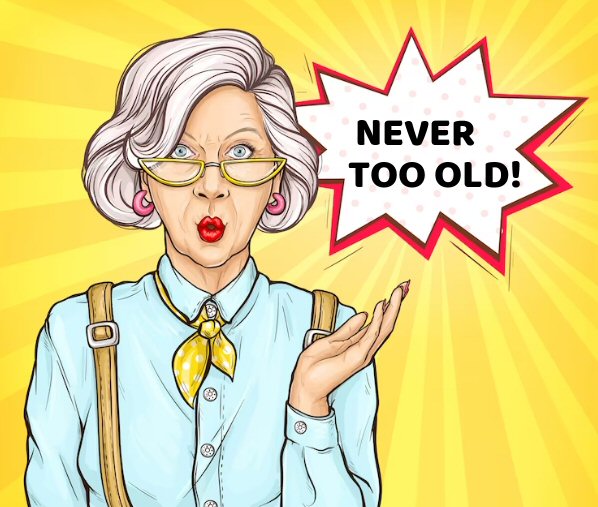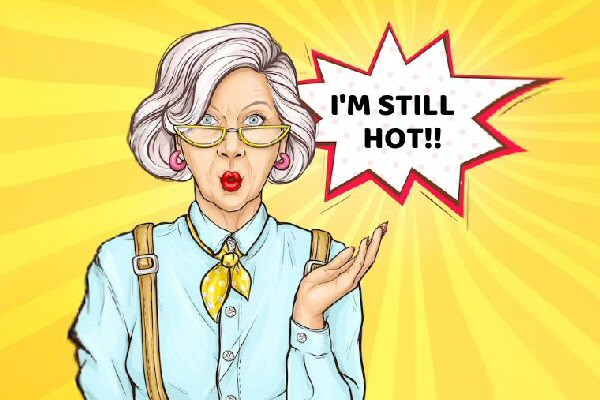Ageing and human sexuality
Ageing and human sexuality
We’re getting old!
 Ageing… it comes to us all!
Ageing… it comes to us all!
Getting older can have various effects on human sexuality as both physical and psychological changes can impact a person’s sexual experiences and desires.
Some people go off the idea of having sex as they become older whilst others become more interested in it.
It’s important to note that individual experiences vary widely, and not everyone will experience the same changes.
Here are some ways aging can influence human sexuality:
Physical Changes:
Hormonal Changes: With age, there can be changes in hormone levels, such as a decrease in testosterone in men and oestrogen in women. These hormonal changes can affect libido (sexual desire) and overall sexual function.
Erectile Dysfunction: In men, ageing can sometimes lead to difficulties achieving or maintaining an erection. This can be due to factors like reduced blood flow, hormonal changes, or other health conditions.
Vaginal Changes: In women, the vaginal walls may become thinner and less elastic due to reduced oestrogen levels. This might lead to discomfort during intercourse and potential for vaginal dryness.
Orgasm Changes: Some individuals may find that the intensity of orgasms changes with age. Men might experience a longer refractory period (the time it takes to recover after ejaculation), while women might find it takes more time or stimulation to reach orgasm.
Chronic Health Conditions: As people age, the likelihood of developing chronic health conditions, such as diabetes, heart disease, and arthritis, increases. These conditions can impact sexual function and enjoyment.
Psychological Changes:
Body Image: Ageing can lead to changes in body composition and appearance. This might impact a person’s self-esteem and body image, potentially affecting their confidence in sexual situations.
Mental Health: Factors like stress, anxiety, and depression can influence sexual desire and function. These issues may become more prevalent with age.
Relationship Changes: Long-term relationships might experience shifts in dynamics over time. Effective communication becomes crucial for maintaining a healthy sexual relationship.
Expectations: Societal expectations and stereotypes about ageing and sexuality can influence how individuals perceive themselves and their sexual experiences as they get older.
Attitude and Openness:
Attitude Toward Sexuality: Cultural and generational attitudes toward sex can affect how individuals approach their sexuality as they age. Some people become more open and exploratory, while others might feel more reserved.
Communication: Open and honest communication with a partner about desires, needs, and any challenges is important at any age. This becomes even more crucial as physical and emotional changes occur.
Lifestyle Factors:
Exercise and Diet: Staying physically active and maintaining a healthy diet can positively influence overall health, including sexual health.
Alcohol and Substance Use: Excessive alcohol consumption and substance use can negatively affect sexual function and desire, especially for men. It’s important for individuals to understand that changes in sexual function and desire are natural parts of the ageing process.
Seeking medical advice if there are concerns about sexual health is recommended, as many issues can be addressed with appropriate treatment and lifestyle adjustments. Additionally, maintaining open communication with partners and focusing on emotional intimacy can contribute to a fulfilling sexual life as people age.


























